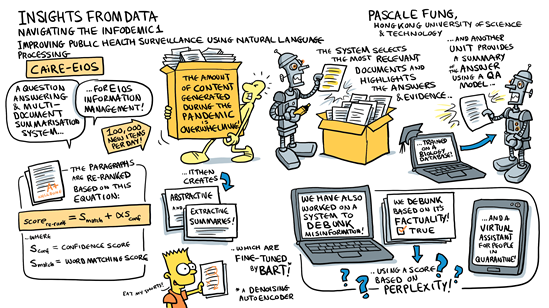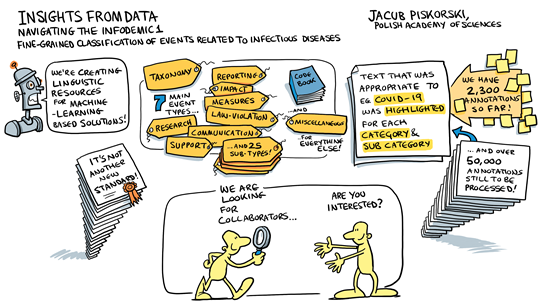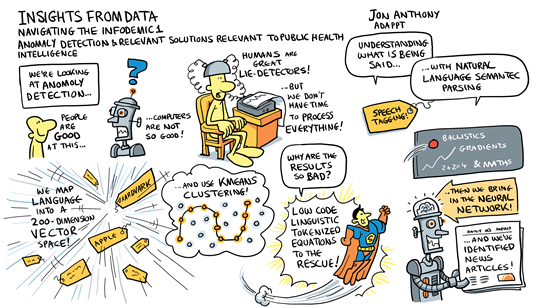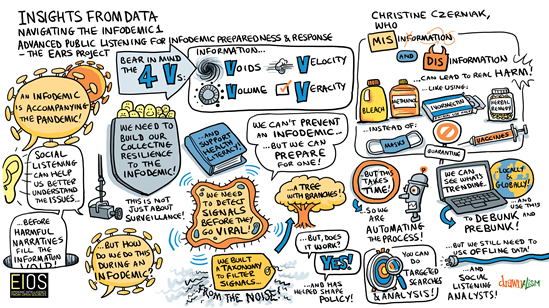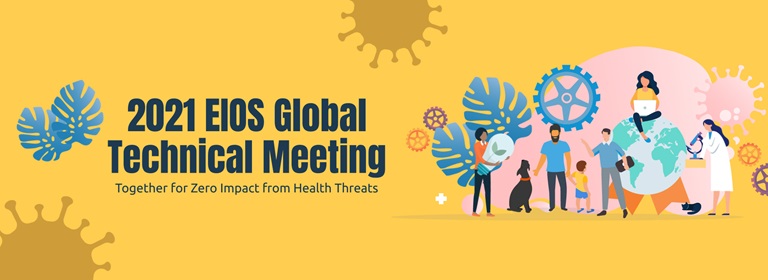
Insights from Data: Navigating the Infodemic 1
Wednesday, 8 December 2021
Moderator
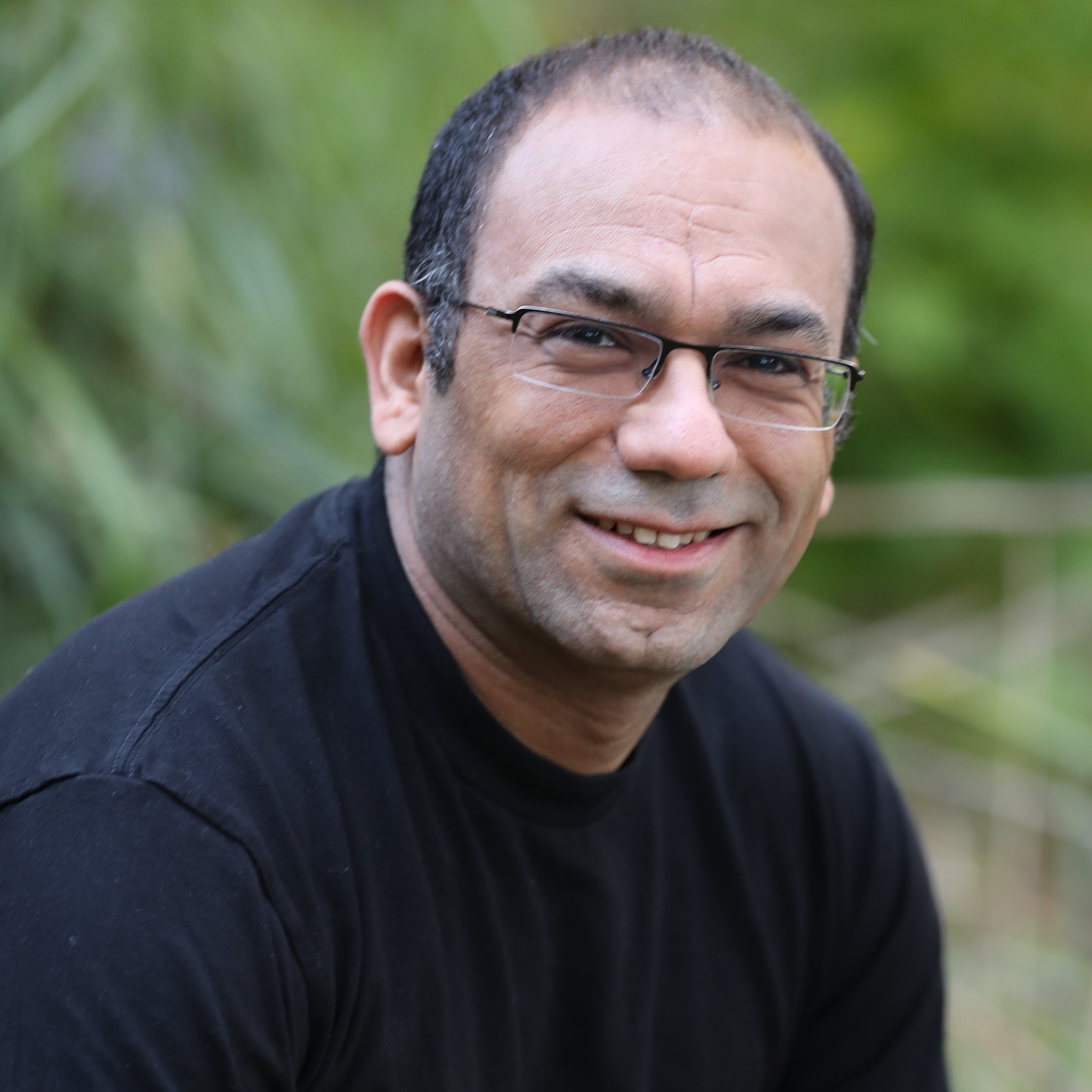
Philip AbdelMalik
Team Lead, World Health Organization (WHO)
Philip is an epidemiologist and public health informatician, passionate about creative and cross-disciplinary ways to enhance public health practice and capacity. With over 20 years of experience in the health domain, he currently leads and manages an interdisciplinary team within WHO’s Health Emergencies Programme, building and strengthening public health intelligence around the globe. This includes the flagship Epidemic Intelligence from Open Sources (EIOS) initiative which is a cornerstone of the WHO Hub for Pandemic and Epidemic Intelligence and the initiative behind this very meeting!
Prior to joining WHO, Philip co-directed the Canadian Field Epidemiology Program and worked extensively with the Global Public Health Intelligence Network (GPHIN) at the Public Health Agency of Canada. Philip’s work has almost always been in the context of emergency preparedness and response activities…including trying to raise two young (mostly adorable) children with his lovely wife from down under.
Philip holds a PhD in Public Health Informatics awarded jointly by the Universities of Plymouth and Exeter in the UK, as well as a Master of Health Science (MHSc) in Epidemiology and Community Health and an Honours BSc with a specialization in Human Biology, both from the University of Toronto, Canada.
Speakers
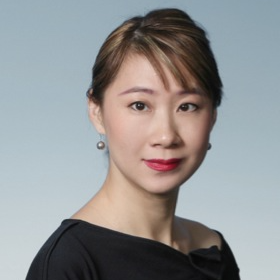
Pascale Fung
Professor, The Hong Kong University of Science and Technology
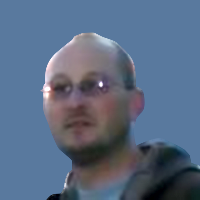
Jakub Piskorski
Polish Academy of Sciences

Jonathan Anthony
Software Architect and Founder, Adappt AI
Jon is the Founder of several companies including Adappt.ai and TheHub.ai
Jon is the software architect behind several key WHO health platforms including EIS (Event Information System), GOARN (Global Outbreak Alert and Response Network), the World Malaria Program, HIV, Cholera and TB mobile apps, EIOS GPSYS Covid government data extraction AI platform and the forthcoming EIOS AI Anomaly Detection Media Monitoring module.
Jon was also the architect behind several global commercial legal platforms including The HUB AI regulatory monitoring platform, Lexis Nexis Create AI based legal assistant, The British Museum Stolen Artifacts Monitoring platform, and has recently been recognized with an award from the UK Home Office for an innovative approach to linguistic analysis of crime data.
When not coding, Jon can usually be found rock climbing.

Christine Czerniak
Communications Expert, Communications Expert
Chris is working to advance the science of infodemiology, and innovate new tools and techniques for infodemic managers to better understand and respond to evolving community concerns for public health. A key focus is building capacities for infodemic management as a core part of national and international health emergency preparedness and response planning. Before joining WHO, she advised UN organizations, government agencies, biotechnology companies, and non-governmental organizations on issues relating to global health, food security, equality, and other development goals.


